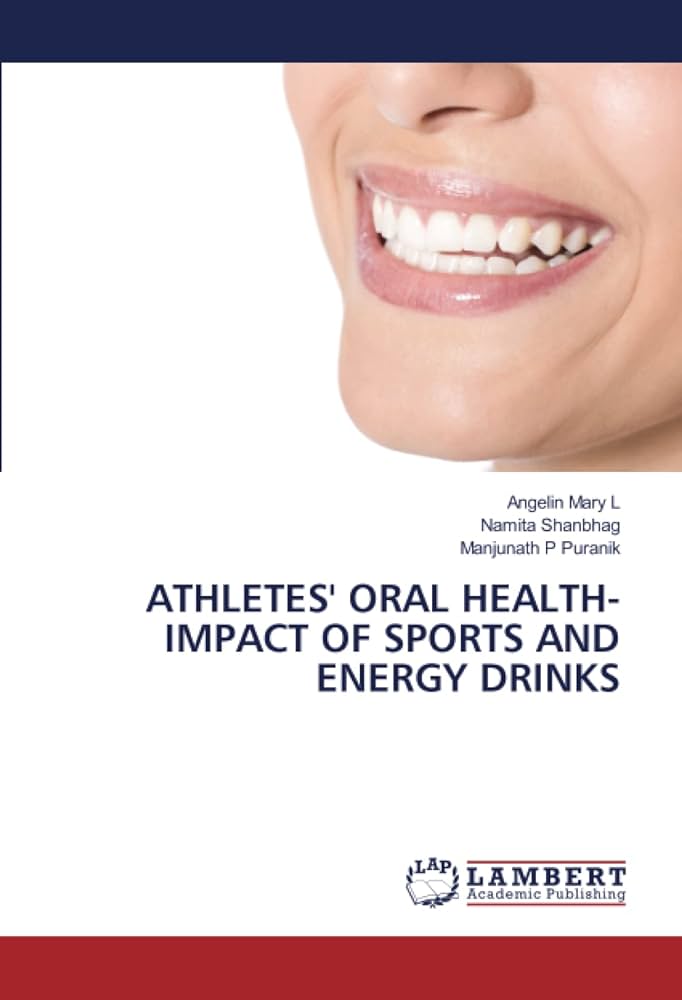The Impact of Sports Drinks on Athletes’ Oral Health
Are you an athlete looking to enhance your performance? While sports drinks may seem like a convenient choice, it’s important to consider their impact on your oral health. These seemingly harmless beverages can actually be the hidden culprits behind dental issues.
With their high sugar content and acidic nature, sports drinks can lead to dental erosion and weaken your enamel. This can ultimately increase your risk of cavities and put your smile at risk.
But don’t worry, there are ways to maintain a healthy smile while still enjoying the benefits of sports drinks. In this article, we will explore the impact of sports drinks on athletes’ oral health and provide you with tips to keep your smile in top shape.
Key Takeaways

– Sports drinks have high sugar content, which can lead to cavities and tooth decay.
– The high acidity levels in sports drinks increase the risk of dental erosion and enamel damage.
– Sports drinks create an environment favorable for bacterial growth, leading to further enamel erosion.
– Regular dental check-ups, good oral hygiene practices, and limiting consumption of sports drinks are crucial for maintaining oral health in athletes.
Sugar Content: The Hidden Culprit
You should be aware of the high sugar content in sports drinks. While they may seem like a refreshing way to replenish your body after a workout, sports drinks can actually be detrimental to your oral health.
These drinks often contain a significant amount of sugar, which can lead to tooth decay and other dental problems. When you consume a sports drink, the sugar in it combines with the bacteria in your mouth to form acid. This acid attacks the enamel on your teeth, causing it to weaken and eventually leading to cavities.
In addition to the high sugar content, sports drinks also tend to be acidic in nature. This acidity can erode the enamel on your teeth even further, making them more susceptible to damage.
It’s important to remember that while sports drinks can be beneficial for hydration and replenishing electrolytes, they should be consumed in moderation. To protect your oral health, try to limit your intake of sports drinks and opt for healthier alternatives such as water or low-sugar electrolyte drinks.
Additionally, make sure to maintain a good oral hygiene routine, including regular brushing and flossing, to keep your teeth strong and healthy.
Acidic Nature: A Recipe for Dental Erosion
With their high acidity levels, sports drinks pose a significant threat to the erosion of dental enamel. When you consume sports drinks, the acid content increases the likelihood of dental erosion, which can lead to tooth sensitivity, cavities, and even tooth loss. The pH levels of sports drinks are often lower than that of saliva and even lower than the critical pH level of 5.5, which is the point at which tooth enamel begins to demineralize. This means that the acid in sports drinks can actively erode the enamel of your teeth, making them more susceptible to damage.
The acidic nature of sports drinks is primarily due to the presence of citric acid, phosphoric acid, and carbonic acid. These acids not only lower the pH of the drink but also increase the acidity in your mouth when you consume them. This prolonged exposure to acid can weaken and erode the protective layer of enamel on your teeth, making them more prone to decay and sensitivity.
It is important to note that the erosive effects of sports drinks can be exacerbated by other factors such as frequent consumption, prolonged contact with teeth, and inadequate oral hygiene practices. Therefore, it’s crucial to minimize your consumption of sports drinks and adopt good oral hygiene habits, such as brushing your teeth twice a day, using fluoride toothpaste, and visiting your dentist regularly for check-ups and cleanings.
Enamel Damage: Weakening the Defense
To further understand the impact of sports drinks on your oral health, it’s important to explore how these beverages weaken the defense mechanism of tooth enamel. Enamel is the hard, outer layer of your teeth that protects them from decay and sensitivity. However, sports drinks can erode this protective layer, leaving your teeth vulnerable to damage.
Sports drinks often contain high levels of acid, which can wear away the enamel over time. The acid in these drinks can also increase the acidity in your mouth, creating an environment that’s favorable for the growth of harmful bacteria. These bacteria can then produce more acid, leading to further enamel erosion.
Additionally, sports drinks are usually high in sugar. When you consume sugary drinks, the sugar combines with the bacteria in your mouth to form acid. This acid attacks the enamel and can lead to tooth decay.
To minimize the damage to your teeth, it’s important to limit your consumption of sports drinks. If you do choose to have a sports drink, consider rinsing your mouth with water afterwards to help neutralize the acid. It’s also important to maintain good oral hygiene practices, including brushing your teeth twice a day with a fluoride toothpaste and flossing daily.
Increased Risk of Cavities: A Sweet Tooth’s Nightmare
As your enamel weakens from the acid and sugar in sports drinks, your teeth become more susceptible to cavities. Sports drinks are often packed with sugar, which feeds the bacteria in your mouth, leading to the formation of plaque. This plaque then produces acids that attack the enamel, causing it to erode and creating an ideal environment for cavities to develop.
Here are three reasons why sports drinks increase your risk of cavities:
– High sugar content: Sports drinks contain high amounts of sugar, which provides food for the bacteria in your mouth. The more sugar you consume, the more bacteria thrive, leading to the production of acids that can erode your enamel.
– Acidic pH levels: Sports drinks are acidic in nature, with a pH level that ranges from 2.4 to 4.5. This acidity softens and weakens your enamel, making it more susceptible to cavities.
– Frequent consumption: Athletes often consume sports drinks during and after physical activity. The frequent consumption of these drinks exposes your teeth to prolonged periods of acid and sugar attacks, increasing the likelihood of cavities.
To protect your oral health, it’s important to limit the consumption of sports drinks and opt for water or other healthier alternatives. Additionally, maintaining good oral hygiene practices such as regular brushing and flossing can help mitigate the risk of cavities.
Maintaining a Healthy Smile: Tips for Athletes
To ensure a healthy smile, athletes can take proactive measures to protect their oral health from the negative effects of sports drinks.
One important tip is to limit the consumption of sports drinks and opt for water instead. While sports drinks may help replenish electrolytes and provide a quick energy boost, they also contain high levels of sugar and acids that can erode tooth enamel and contribute to tooth decay.
Another tip is to practice good oral hygiene habits. This includes brushing your teeth at least twice a day with fluoride toothpaste, flossing daily, and using mouthwash to help kill bacteria and freshen breath.
Regular dental check-ups and cleanings are also crucial for athletes to maintain a healthy smile. Dentists can detect any early signs of tooth decay or gum disease and provide professional cleanings to remove plaque and tartar buildup.
Additionally, athletes should consider using mouthguards during sports activities to protect their teeth from potential injuries.
Frequently Asked Questions
Are Sports Drinks the Only Beverages That Can Negatively Impact Oral Health in Athletes?
Are sports drinks the only beverages that can negatively impact oral health in athletes?
No, they’re not. While sports drinks are often blamed for causing dental problems in athletes, there are other beverages that can also have a detrimental effect.
Sugary sodas, energy drinks, and even fruit juices can contribute to tooth decay and gum disease.
It’s important for athletes to be mindful of their overall beverage consumption and maintain good oral hygiene practices to protect their dental health.
How Often Should Athletes Consume Sports Drinks to Minimize the Risk of Dental Erosion?
To minimize the risk of dental erosion, you should consider how often you consume sports drinks as an athlete. It’s important to find a balance between staying hydrated and protecting your oral health.
While sports drinks can provide necessary hydration during intense physical activity, excessive consumption can lead to dental problems. It’s recommended to limit your intake of sports drinks and choose water or other healthier alternatives whenever possible.
Consulting with a dentist or nutritionist can help you determine the best approach for maintaining both your performance and oral health.
Can Brushing and Flossing Alone Help Prevent Enamel Damage Caused by Sports Drinks?
Brushing and flossing alone may not be enough to prevent enamel damage caused by sports drinks. While these oral hygiene practices are important for maintaining dental health, the acidic nature of sports drinks can still erode tooth enamel over time.
It’s advisable to limit your consumption of sports drinks and rinse your mouth with water after drinking them. Additionally, visiting a dentist regularly for check-ups and cleanings can help identify and address any oral health issues caused by sports drinks.
Are There Any Alternative Hydration Options for Athletes That Do Not Pose a Risk to Their Oral Health?
Are you looking for alternative hydration options that won’t harm your oral health? Well, there are indeed options available.
While sports drinks may pose a risk to your teeth, you can consider drinking water as a healthier alternative. Water not only keeps you hydrated but also doesn’t contain the sugars and acids found in sports drinks that can damage your enamel.
What Additional Steps Can Athletes Take to Maintain a Healthy Smile Besides Limiting Their Consumption of Sports Drinks?
To maintain a healthy smile, besides cutting back on sports drinks, there are a few additional steps you can take.
First, make sure to brush your teeth at least twice a day with a fluoride toothpaste.
Second, floss daily to remove any food particles that may be stuck between your teeth.
Lastly, visit your dentist regularly for check-ups and cleanings.
These steps will help keep your smile bright and your oral health in top shape.
Conclusion
In conclusion, athletes need to be aware of the potential negative impact that sports drinks can have on their oral health. The high sugar content and acidic nature of these drinks can lead to dental erosion, enamel damage, and an increased risk of cavities.
It’s important for athletes to prioritize maintaining a Bonuses healthy smile by practicing good oral hygiene, limiting the consumption of sports drinks, and opting for healthier alternatives whenever possible.

Welcome to my website! I’m Declan Gaffney, a dedicated and passionate Preventive Dentist with years of experience in promoting oral health and providing top-notch dental care. I am thrilled to share my knowledge and expertise with you through this platform.

